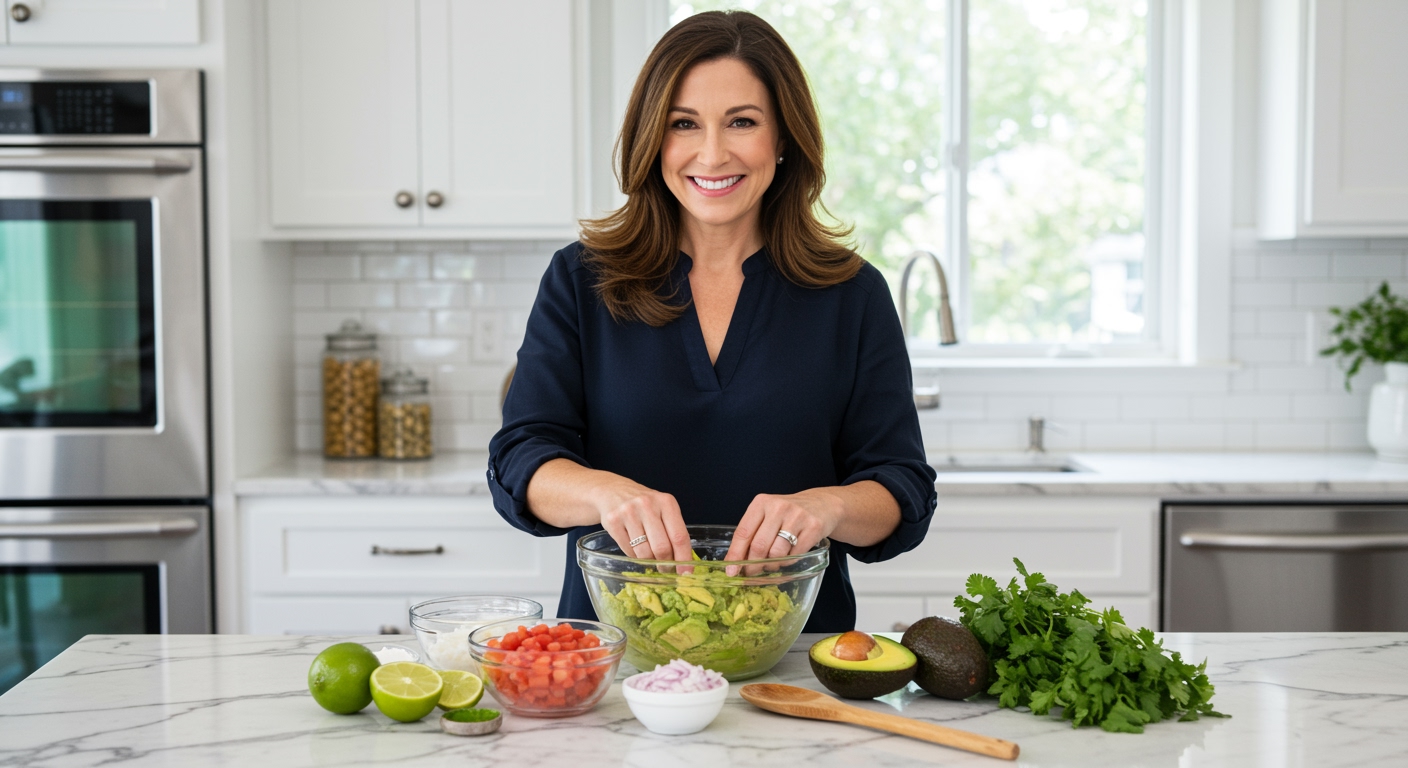✪ Key Takeaway: Guacamole is excellent for diabetes due to its low glycemic index and healthy fats that help stabilize blood sugar.
Introduction
You reach for that bowl of guacamole at the party, then suddenly stop.
Your mind races with questions about whether this creamy green dip will send your blood sugar through the roof.
Hi, I’m Abdur, your nutrition coach and today I’m going to explain exactly why guacamole can be one of the best snacks for managing your diabetes.
What Makes Guacamole Different From Other Dips?
Most party dips are loaded with processed ingredients and hidden sugars that wreak havoc on blood glucose levels.
Guacamole stands apart because its main ingredient is avocado, which has a glycemic index of zero.
This means avocados cause virtually no spike in blood sugar when you eat them.
The monounsaturated fats in avocados actually slow down the absorption of carbohydrates from other foods you eat with them.
Research shows that adding avocado to meals can reduce the glycemic response by up to 30 percent compared to eating the same meal without avocado.
Traditional guacamole contains lime juice, onions, tomatoes, and cilantro – all ingredients with minimal impact on blood sugar.
✪ Fact: One cup of guacamole contains only 4 grams of net carbohydrates due to its high fiber content.
How Does Guacamole Affect Your Blood Sugar?
When you eat guacamole, your body processes it completely differently than sugary or starchy foods.
The healthy fats trigger the release of hormones that signal fullness to your brain, preventing overeating.
These same fats slow gastric emptying, which means food moves more slowly from your stomach to your small intestine.
This slower digestion process helps prevent the rapid blood sugar spikes that damage your blood vessels over time.
The fiber content in avocados further slows carbohydrate absorption and feeds beneficial gut bacteria.
Studies demonstrate that people with diabetes who eat avocados regularly show improved insulin sensitivity and better long-term blood sugar control.
The potassium in guacamole also supports healthy blood pressure, which is crucial for people managing diabetes.
✪ Pro Tip: Eat guacamole before meals containing carbohydrates to minimize blood sugar spikes naturally.
What Should You Watch Out For In Store-Bought Versions?
Not all guacamole is created equal, especially the versions you find in grocery stores.
Many commercial brands add unnecessary sugars, corn syrup, or artificial preservatives that can spike your blood glucose.
Some manufacturers use fillers like sour cream or mayonnaise to cut costs, which changes the nutritional profile completely.
Always check the ingredient list and look for products that contain only whole food ingredients.
The best store-bought guacamoles will list avocados as the first ingredient, followed by simple additions like lime juice, salt, and spices.
Avoid products with modified food starch, high fructose corn syrup, or artificial colors that serve no nutritional purpose.
Making your own guacamole at home gives you complete control over ingredients and ensures maximum health benefits.
✪ Note: Homemade guacamole stays fresh for up to three days when stored properly in the refrigerator.
How Much Guacamole Can You Safely Eat?
Portion control matters even with healthy foods like guacamole.
A reasonable serving size is about two tablespoons, which provides approximately 60 calories and 5 grams of healthy fat.
This amount gives you the blood sugar benefits without excessive calories that could lead to weight gain.
People with diabetes can safely enjoy guacamole daily as part of a balanced eating plan.
The key is pairing it with appropriate foods like fresh vegetables, whole grain crackers, or lean proteins.
Avoid eating guacamole with high-carb foods like regular tortilla chips, which can overwhelm the blood sugar benefits.
Instead, use cucumber slices, bell pepper strips, or celery sticks as your dipping vehicles for maximum health impact.
✪ Pro Tip: Use a small spoon to measure portions until you can eyeball the right amount consistently.
The Bottom Line
Guacamole is not just safe for diabetes – it’s actually beneficial for blood sugar management when eaten in appropriate portions.
The best foods for diabetes are often the ones that work with your body’s natural processes rather than against them, and guacamole is a perfect example of this principle in action.
I’d love to hear about your experience with guacamole and diabetes management, so please share your thoughts or questions in the comments below.
References
At NutritionCrown, we use quality and credible sources to ensure our content is accurate and trustworthy. Below are the sources referenced in creating this article:
- PMC: Avocado Consumption and Metabolic Health
- January AI: Avocado Glycemic Index
- PMC: Dietary Patterns and Diabetes Management
- Medical News Today: Avocado and Diabetes Benefits





